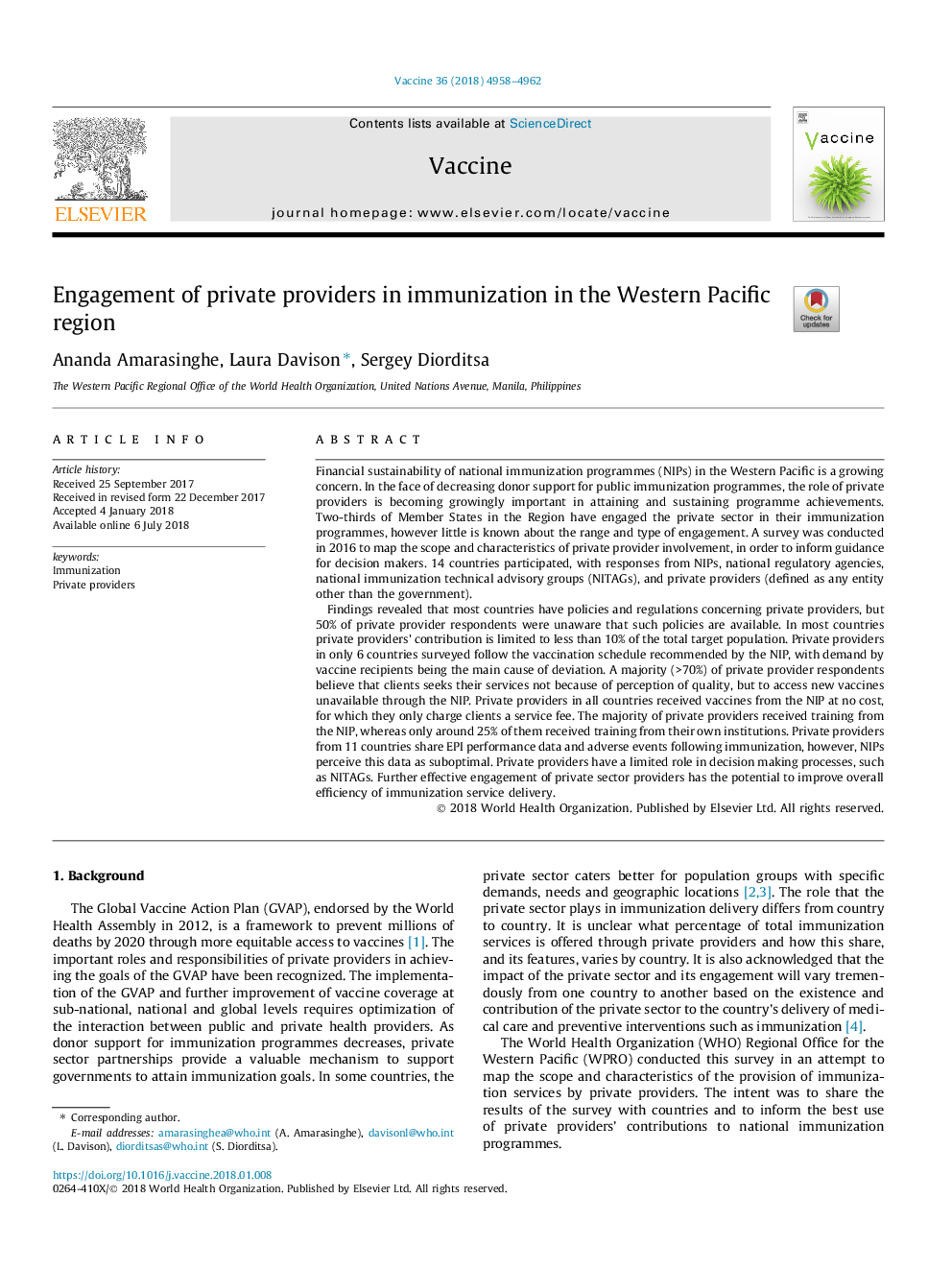| Article ID | Journal | Published Year | Pages | File Type |
|---|---|---|---|---|
| 8485424 | Vaccine | 2018 | 5 Pages |
Abstract
Findings revealed that most countries have policies and regulations concerning private providers, but 50% of private provider respondents were unaware that such policies are available. In most countries private providers' contribution is limited to less than 10% of the total target population. Private providers in only 6 countries surveyed follow the vaccination schedule recommended by the NIP, with demand by vaccine recipients being the main cause of deviation. A majority (>70%) of private provider respondents believe that clients seeks their services not because of perception of quality, but to access new vaccines unavailable through the NIP. Private providers in all countries received vaccines from the NIP at no cost, for which they only charge clients a service fee. The majority of private providers received training from the NIP, whereas only around 25% of them received training from their own institutions. Private providers from 11 countries share EPI performance data and adverse events following immunization, however, NIPs perceive this data as suboptimal. Private providers have a limited role in decision making processes, such as NITAGs. Further effective engagement of private sector providers has the potential to improve overall efficiency of immunization service delivery.
Keywords
Related Topics
Life Sciences
Immunology and Microbiology
Immunology
Authors
Ananda Amarasinghe, Laura Davison, Sergey Diorditsa,
